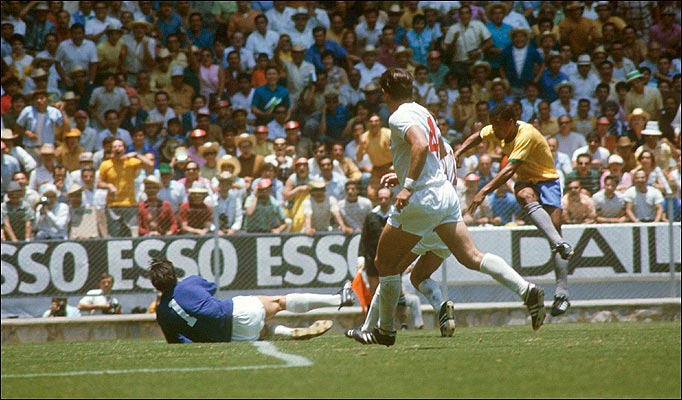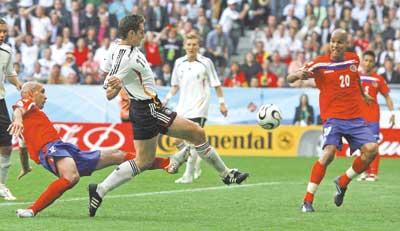58th Minute, Gheorghe Hagi, Romania v Argentina, World Cup 1994 2nd Round
Context
Romania competed in the first three World Cups, winning just the once in the five matches they played across the tournaments. They then only qualified for one World Cup (in 1970) over next five decades before having their strongest spell in their history during the nineties where they qualified for the World Cup and made It out the group stages three times in a row.
They lost to Republic of Ireland on penalties in the second round of the 1990 World Cup but they recovered from this disappointment to qualify for the 1994 World Cup with a dramatic win in Cardiff against Wales where they were thankful for Paul Bodin missing a penalty.
Romania were placed in the same group as hosts USA. Alongside them were fellow European side Switzerland but they would open with a fantastic win against Colombia who were seen as a dark horse to win the World Cup. They had been second best until Răducioiu gave them the lead. Romanian keeper Bogdan Stelea then pulled off two incredible saves to deny Rincon and Valencia and an inspired Hagi scored a wonder/fluke goal to put Romania two goals clear. Valencia finally found a way past Stelea but Răducioiu scored again to seal the game for the Romanians in the second half. It was seen as an upset and then the Romanians let the success get to their head as in their next game against Switzerland they were thrashed 4-1 by Roy Hodgson’s side. Their final group game was against the USA where they beat the hosts 1-0.
That win was enough to give them the group and they faced Argentina who were reeling from losing Diego Maradona to a failed drug test. The game got off to a flying start in front of over ninety thousand people in hot and sunny California. Two goals by Ilie Dumitrescu sandwiched between a Batistuta penalty put the Romanians two goals to one up inside the first twenty minutes.
The Goal
Just before the hour mark “The Maradona of the Carpathians” finishes off a brilliant counter attack to put the Romanians two goals ahead.
What Happened Next?
Romania won 3-2 and in the next round Romania played Sweden in a thrilling quarter final where Romania for the second World Cup running lost on penalties.
Extras
Hagi artwork by MiniBoro
http://miniboro.com/13420.html
A 12-year-old Landon Donavon was present in the crowd in the Rose Bowl that day and it inspired him to become a professional footballer.
http://voices.washingtonpost.com/soccerinsider/2010/12/landon_donovans_inspiration_ro.html










